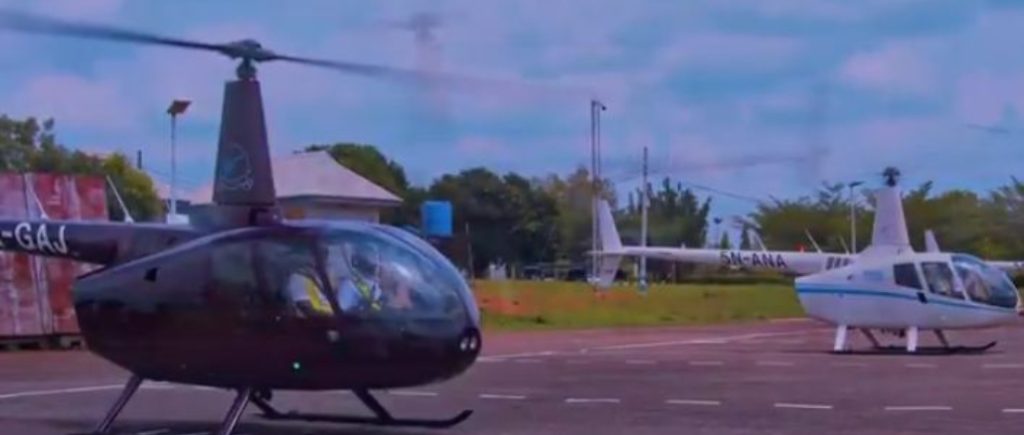Nigeria has reached a historic landmark in its aviation journey with the official launch of the International Helicopter Flying School (IHFS) by the Nigerian Air Force (NAF) in Enugu State. The inauguration of this advanced institution signals more than just new infrastructure—it’s a bold declaration of intent by Nigeria to become a continental leader in both military and civilian helicopter pilot training.
Located in the southeastern city of Enugu, the IHFS represents a collaborative effort among several stakeholders to raise the standard of aviation skills within Nigeria and the wider West African region. According to an official statement from the NAF, the primary goal is to train elite helicopter pilots capable of meeting the exacting demands of both defense and civilian operations. This signals an evolution in national priorities, focusing on technical empowerment, employment prospects, and enhanced operational readiness.
The new school boasts state-of-the-art flight training facilities, modern classrooms, and well-equipped maintenance workshops. According to Air Marshal Hassan Abubakar, Nigeria’s Chief of the Air Staff, “Our vision is to transform the IHFS into a centre for excellence that delivers world-class helicopter training aligned with global best practices.” He stressed that the blend of technological advancements and experienced teaching personnel will make the institution a benchmark not only for Africa but for aspiring pilots worldwide. (Source: NAF Press Release, June 2024)
The project itself was made possible through public-private partnerships, most notably with Aeronautical Engineering and Technical Services Limited and Triax Airlines Limited. These collaborations leverage local expertise while opening doors to international standards. Aviation analyst Chidi Ibekwe of Lagos observed, “The IHFS is more than a training center; it’s proof that Nigeria can develop vital national assets through strategic alliances that prioritize both skill and safety.”
In terms of course offerings, the IHFS provides robust training programs for both serving military personnel and civilian students. The curriculum is a mix of intensive hands-on flight time, simulator sessions, technical maintenance training, and classroom-based learning modules. Trainees will cover a range of topics including flight safety, emergency protocols, aviation law, navigation, and operational efficiency. Officials emphasize the curriculum is not static, but evolves to reflect industry trends and international regulations—ensuring that Nigerian pilots can compete and collaborate globally.
According to the NAF, instructors at the IHFS are highly qualified, having received both local and international certifications. Many possess operational experience in diverse settings, from high-risk search-and-rescue missions to advanced air mobility roles. The Air Force further noted, “Our instructors do not only impart technical knowledge, they also instill the discipline and confidence necessary for leadership in the air.” (NAF spokesperson, June 2024)
The broader impact on Nigeria’s national security and economic capacity cannot be overstated. With Boko Haram and other security threats posing ongoing challenges, the timely availability of highly skilled helicopter pilots could prove decisive in surveillance, rapid response, and humanitarian missions. In the civilian sector, graduates from IHFS are expected to fuel the growing demand for helicopter services, especially in offshore oil operations, emergency medical evacuations, and infrastructure monitoring.
Speaking with community residents in Enugu, many expressed pride in hosting such a pivotal centre. “We hope this will inspire young people here and across Nigeria to pursue aviation careers,” said local teacher Ngozi Okoro. She added, “This institution brings opportunities for our children and for the entire region.” According to data from Nigeria’s National Bureau of Statistics, the aviation sector has seen steady growth in recent years, but a shortage of skilled pilots has been a bottleneck for further expansion.
However, some aviation experts are urging vigilance regarding regulatory compliance and capacity building. Lagos-based aviation safety consultant Ibrahim Ahmed cautioned, “While investment in infrastructure is commendable, the sustainability and credibility of the IHFS hinge on continuous faculty training, curriculum reviews, and proper alignment with Nigerian Civil Aviation Authority (NCAA) and International Civil Aviation Organization (ICAO) standards.” He called for regular audits and transparent reporting to ensure the IHFS becomes a truly world-class institution.
The IHFS’s launch comes at a time of heightened regional interest in advanced aviation skills. Countries like Ghana and Côte d’Ivoire are also investing in pilot training facilities, but analysts suggest Nigeria’s IHFS could quickly become the preferred destination for pilot candidates from neighbouring countries if the school lives up to its promise.
Social media reaction to the announcement has been energetic. On X (formerly Twitter), hundreds of young Nigerians have already flocked to NAF’s official handle to ask about eligibility, application dates, tuition fees, and syllabus details. According to reports, the NAF has responded by releasing a Frequently Asked Questions section and dedicated email contacts for prospective applicants, reflecting a transparency not always associated with government recruitment drives.
In addition, the 2025 nationwide recruitment exercise launched by the Nigerian Air Force is running in parallel with the IHFS unveiling. Beyond pilot training, NAF is opening its doors to candidates in areas like engineering, medical services, IT and cybersecurity. Applicants must meet strict age, educational, and nationality requirements, which are detailed on the NAF website. This comprehensive approach to talent sourcing is in line with the Air Force’s broader modernization and professionalization agenda.
Despite the excitement, some observers have raised questions about accessibility and affordability. Would young people from less privileged backgrounds be able to gain admission, or will initial intakes be dominated by those with connections? According to NAF officials, scholarships and financial aid programs are being developed to ensure equity and social inclusion.
Looking ahead, the IHFS is poised to not only boost Nigeria’s defense capability, but also build lasting regional and international partnerships in aviation. As Nigeria continues to position itself as a leader in technological and professional education across Africa, institutions like IHFS serve as critical infrastructure for the next generation of skilled workers.
Ultimately, experts agree the true measure of the IHFS’s success will be seen in the career trajectories of its graduates—whether they stay in Nigeria to power local industries, serve the country’s defense needs, or take their expertise onto the world stage as ambassadors of Nigerian aviation excellence.
Curious to see the school in action, or want a glimpse of the opening ceremony? Watch the video below…
How do you see Nigeria’s new International Helicopter Flying School shaping our future in aviation and national security? Will it open up opportunities for you or your community? Drop your thoughts in the comments below, and don’t forget to follow us for continuous updates on this and related stories.
Stay in the loop! Follow us on Facebook, X (Twitter), and Instagram for the latest news, community spotlights, and opportunities across Nigeria and West Africa.










